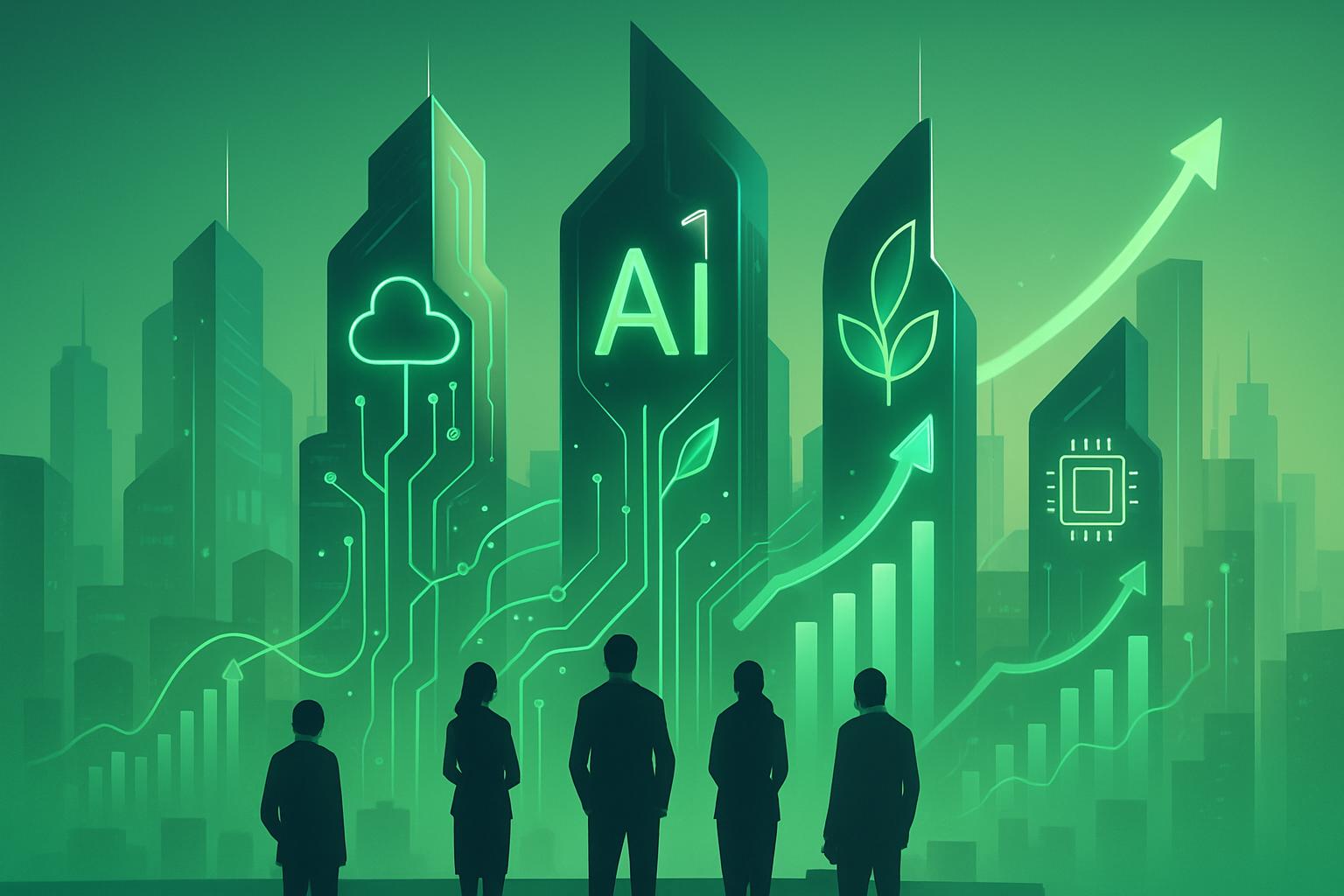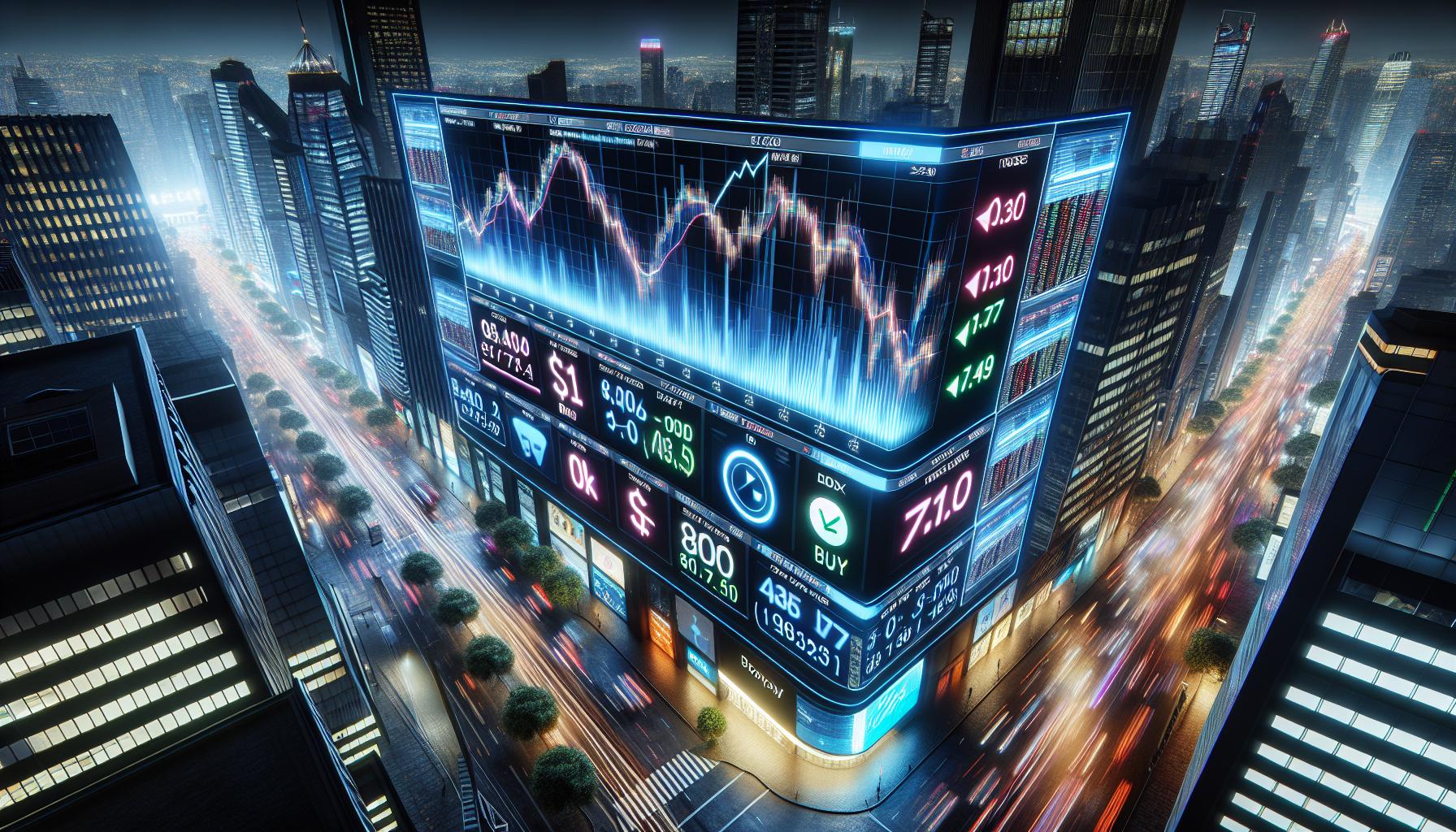Tech Megacaps Top $21 Trillion as Antitrust Rulings and AI Partnerships Drive Gains
This week marked a significant milestone for U.S. technology giants as the combined market capitalization of the country’s eight trillion-dollar tech companies surged by $420 billion to reach $21 trillion. This figure now accounts for approximately 36% of the S&P 500, an unprecedented concentration according to Howard Silverblatt, senior index analyst at S&P Dow Jones Indices.
Antitrust Resolution Spurs Alphabet and Apple Rally
The catalyst behind Alphabet’s 9% jump on Wednesday was a U.S. District Court ruling that, while affirming Google’s loss in a longstanding antitrust case, imposed less severe remedies than initially anticipated. U.S. District Judge Amit Mehta decided against forcing Google to divest its Chrome browser, instead requiring the company to share search data with competitors. This outcome mitigated concerns over Google’s market dominance and allowed Alphabet to rise more than 10% for the week.
Apple also benefited, as the ruling preserved a lucrative arrangement whereby Google pays Apple billions annually to remain the default search engine on iPhones. Apple’s shares increased by 3.2%, contributing to a 1.1% gain for the Nasdaq index.
Wedbush Securities analysts noted the ruling “removed a huge overhang” for Google and alleviated a “black cloud worry” for Apple, potentially clearing the path for expanded AI collaborations involving Google’s Gemini models.
Generative AI Shifts Market Dynamics
Judge Mehta highlighted the emergence of generative AI technologies as a critical factor in his decision, recognizing the increasing competition from companies like OpenAI, Anthropic, and Perplexity. These developments have altered the competitive landscape that antitrust regulators originally sought to address.
Broadcom Joins Trillion-Dollar Club on AI Contract
Broadcom’s stock surged 13% following its strong earnings report and CEO Hock Tan’s announcement of a $10 billion contract with a new customer, widely believed to be OpenAI. This deal marks Broadcom as a key player in the AI chip market alongside Google, Meta, and ByteDance, boosting its market capitalization to approximately $1.6 trillion after a 120% gain over the past year.
Barclays analysts praised Broadcom’s growth prospects and backlog, maintaining a buy rating and raising their price target.
Nvidia and Microsoft Face Headwinds
In contrast, Nvidia shares declined over 4% during the holiday-shortened week, marking the fourth consecutive weekly drop despite no negative news. Nvidia remains the largest tech company by market cap at over $4 trillion, with a 56% rise over the prior 12 months. Microsoft shares also fell, extending a five-week slide, though still up 21% year-over-year.
Tesla Shares Climb on CEO Pay Proposal
Tesla, which has struggled with a 13% decline this year amid increased competition and product lineup challenges, saw a 5% stock gain this week. The boost followed the announcement of a proposed CEO compensation plan for Elon Musk potentially worth nearly $1 trillion. The plan consists of 12 tranches tied to significant market cap milestones, beginning with a threshold of $2 trillion.
Tesla Chairwoman Robyn Denholm emphasized the plan’s intent to keep Musk motivated and focused on company performance.
European Fine for Alphabet
Despite the positive U.S. developments, Alphabet faced a 2.95-billion-euro ($3.45 billion) fine from European Union regulators related to anti-competitive practices in its advertising technology business. Investors appeared unfazed by this setback.
FinOracleAI — Market View
The recent antitrust ruling in the U.S. easing restrictions on Google and Apple has removed significant regulatory uncertainty, providing a strong near-term catalyst for tech megacaps. Broadcom’s new AI contract and Tesla’s CEO compensation proposal further underpin momentum in the sector.
Risks remain from regulatory actions abroad, as seen in the EU fine against Alphabet, and from ongoing market pressures affecting Nvidia and Microsoft. Investors should monitor regulatory developments, AI adoption rates, and competitive dynamics in AI hardware and software.
Impact: positive













